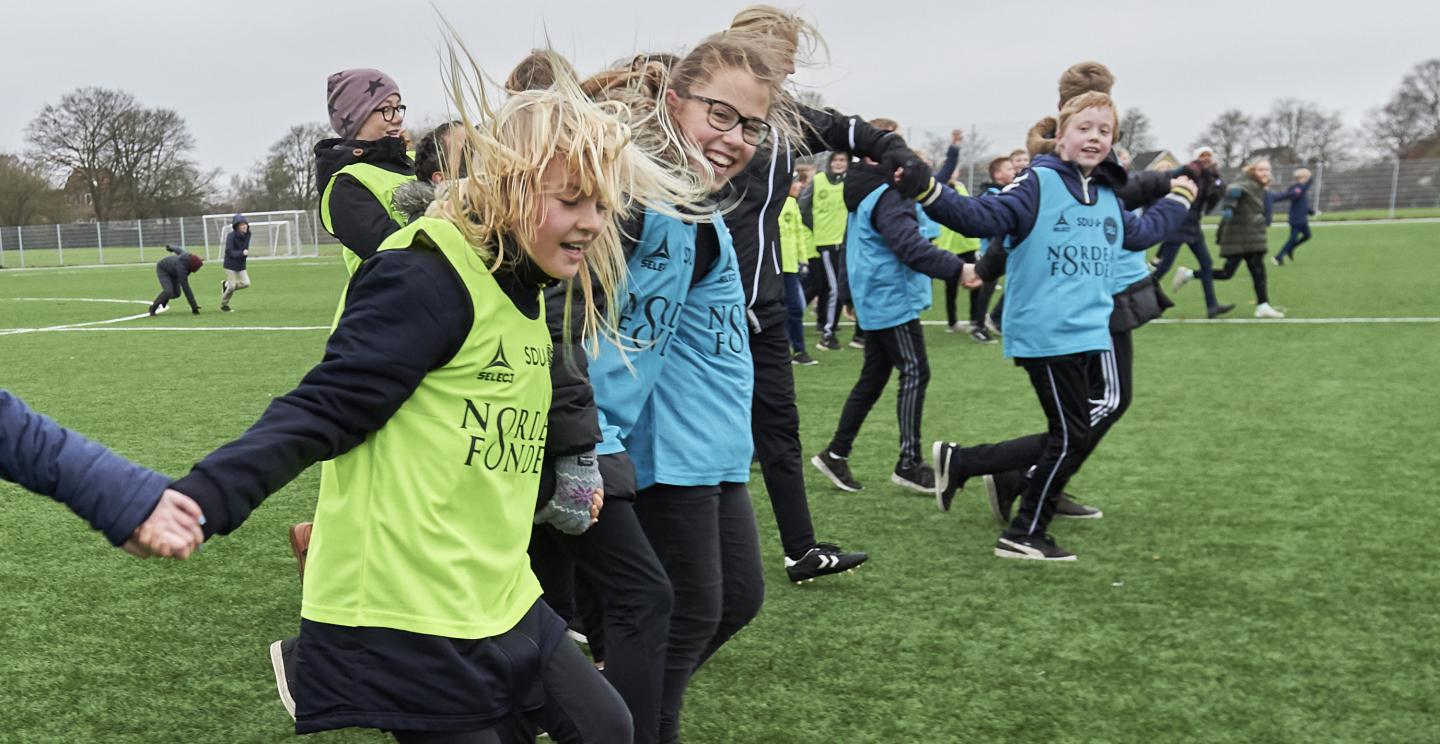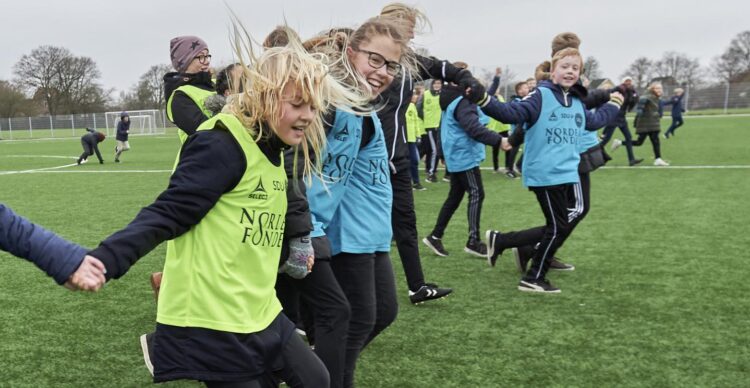A new study from the University of Southern Denmark shows that health knowledge in relation to diet, exercise, hygiene and wellbeing can be increased through a programme of football exercises as part of school lessons

Credit: Robert Wengler + 45 20430656 – [email protected] – www.wengler.dk
Knowledge about health is a cornerstone in a child’s development of physical and psychosocial health.
Since 2016, around 25,000 pupils in years 4-6 in 86 of Denmark’s municipalities have taken part in the project “11 for Health in Denmark”, an 11-week exercise and health education programme offered to all schools in a collaboration between the University of Southern Denmark and the Danish Football Association.
More than 3,000 of these pupils completed questionnaires before and after the programme aimed at determining their knowledge about health and understanding their experience of the 11-week programme.
An increase of 10 percentage points in health knowledge
The main article from this study, which has now been published in leading sports science journal the British Journal of Sports Medicine, confirms that the programme is meeting its key objectives:
“The participating children increased their knowledge about health in the areas of diet, exercise, hygiene and wellbeing to a greater extent than the control group, which followed the originally planned lessons in the 11 weeks between the questionnaires. There was a difference between the groups of more than 7 percentage points for both boys and girls, and in a number of key health areas the difference was more than 10 percentage points,” says postdoc Malte Nejst Larsen, the article’s lead author.
“The idea that children learn best if they can connect the learning to relevant activities is not new, but it’s rare for such large studies to be carried out in real-world schools – and with such unambiguous results,” he says.
Physical activity during coronavirus
The “11 for Health” concept was developed long before the coronavirus epidemic, but it has proven effective in relation to all the current challenges around health, fitness, physical activity, wellbeing and knowledge about hygiene.
The latest results show very clearly that it is possible to combine health learning with exercise that is fun, motivational and inclusive for all children – including those who have very little experience of sport. A good example is that the children doubled their knowledge about hand hygiene through the programme.
This was explained by the project’s lead researcher Professor Peter Krustrup of the Department of Sports Science and Clinical Biomechanics at the University of Southern Denmark, who stresses that there was record-high participation in autumn 2020.
The researchers are also, therefore, delighted that the Nordea Foundation (Nordea-fonden), which has been supporting the project since 2018, has extended its support through to summer 2021. The project group is currently seeking funding for an ambitious expansion of the concept and a research study of the concept’s long-term effects.
Both boys and girls like the project
The article also provides data on the children’s opinion of the programme. These show very encouragingly that the girls rate the programme just as highly as the boys (4 on a scale of 1-5), despite the fact that the girls generally have considerably less experience of football than the boys.
Bent Clausen, Vice President of the Danish Football Association with a focus on amateur football, is delighted about this:
“It is great that ’11 for Health’ is able to have a broad reach and spark an interest in football in all children, both boys and girls, beginners and experienced players. After all, that is what football is really good at – including everyone no matter what their background. And with the school programme a natural next step, and an important aid for the associations, is getting new players and including them in the valuable communities within the football clubs.”
###
About the study
- Researchers from the University of Southern Denmark studied 3,117 participants in the “11 for Health in Denmark” project.
- The participants were boys and girls in year 5.
- The participants completed a questionnaire at the start of the study and again after 11 weeks.
The results show that:
- “11 for Health in Denmark” improves health knowledge in 10-13-year-old Danish children by up to approx. 10 percentage points.
- The teaching of “11 for Health in Denmark” is equally effective for girls and boys, and girls achieve the best outcomes for wellbeing.
- Girls and boys rate the programme equally highly.
- “11 for Health in Denmark” can play an important role in preventing diseases.
The “11 for Health in Denmark” project is financially supported by the Nordea Foundation (Nordena-fonden).
What are the prospects for “11 for Health”?
- Politicians, school heads, teachers and educators can use this knowledge and the “11 for Health in Denmark” programme when implementing health teaching in middle schools.
- The programme has the potential to motivate and engage more 10-13-year-old children, especially girls, in sports clubs after they have had a positive experience of football and physical activity.
- The scaled-up programme is tailored for use in western countries to promote a combination of health education and motivational physical activity, with broad-spectrum improvements in health knowledge, wellbeing, cognitive function and physiological health profile.
In connection with the publication of the “11 for Health in Denmark” main article in the British Journal of Sports Medicine, the editor writes in a leader that the Danish version of the concept can usefully be extended to the entire western world.
Media Contact
Peter Krustrup
[email protected]
Original Source
https:/
Related Journal Article
http://dx.





